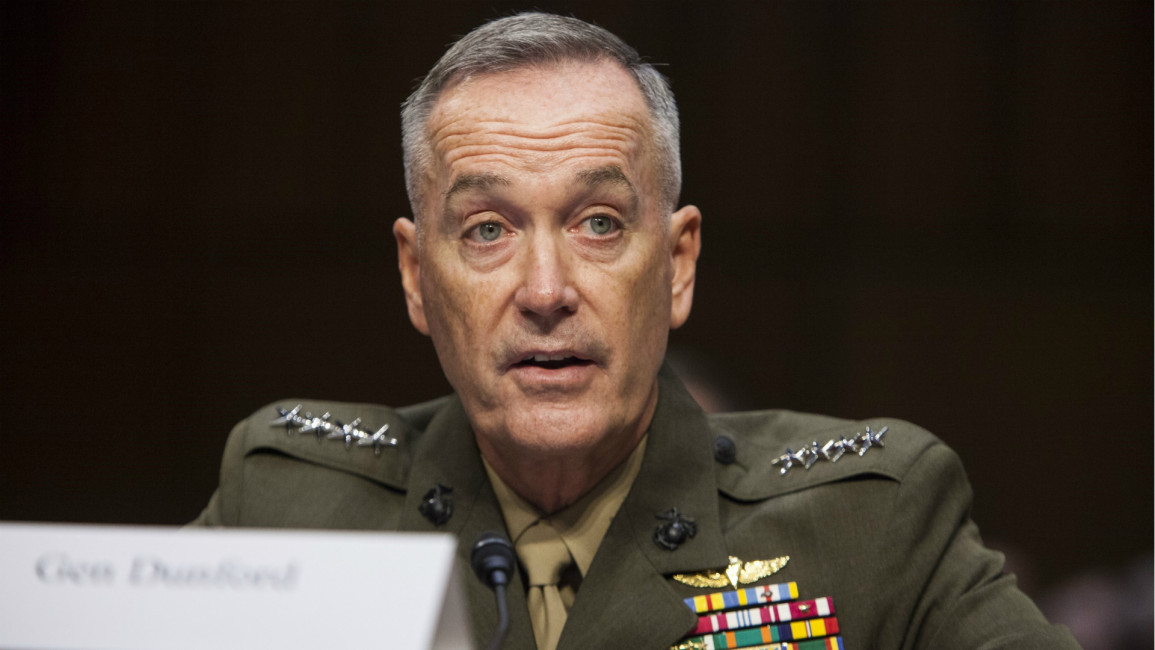US general says Russian strikes in Iraq not needed
Dunford, chairman of the US Joint Chiefs of Staff, was making his first trip to the warzone since taking the top post on October 1.
He told reporters travelling with him that earlier reports stating that the Iraqi government wanted Russia to conduct airstrikes in Iraq are no longer in play, adding that US officials spoke with Iraqi leaders and were told no Russian strikes have been requested.
This is Dunford's first overseas trip since he took the job, signalling the high priority he and the Pentagon leadership place on finding the right formula to use local forces, backed by coalition airstrikes, to defeat the IS and retake territory the militants control in Iraq and Syria.
He is scheduled to meet with the head of Iraq's Kurdish regional government, President Massoud Barzani and other government leaders later Tuesday.
Iraqi officials have broad concerns about any effort to provide equipment or weapons directly to the Kurds.
The 'Kurdish model'
Dunford's visit comes just a few months after US Defence Secretary Ash Carter made a trip to Irbil, also meeting with Kurdish leaders.
Carter at that time told US and coalition forces that the Kurdish troops, known as the Peshmerga, are "the model of what we are trying to achieve" - capable and motivated local forces who can battle IS militants.
The US has been training and equipping the Kurdish forces, through the auspices of the Iraqi government, and the Kurds have proven to be better able to combat IS than the Iraqi Army.
But so far, the US has not provided arms directly to the Kurds, insisting instead that it works through the country's central government in Baghdad in order to avoid fomenting more division.
The battle for Baiji
Dunford said he wants to talk with his commanders to get updates on battles in Iraq's Baiji and Ramadi.
Late last week Iraqi troops backed by Shia militia fighters drove IS militants out of the Baiji oil refinery, which has been contested for months.
Baiji, which is about 155 miles [250 kilometres] north of Baghdad, is strategically located on the road to Mosul, the country's second largest city.
Mosul and Ramadi, the capitol of Iraq's western province of Anbar, are both under IS control, and efforts to retake them have been problem-plagued.
Islamic State extremists swept across northern Iraq last year, taking over large sections of the country. Much of the Iraqi Army collapsed, with troops fleeing or joining the militants.



